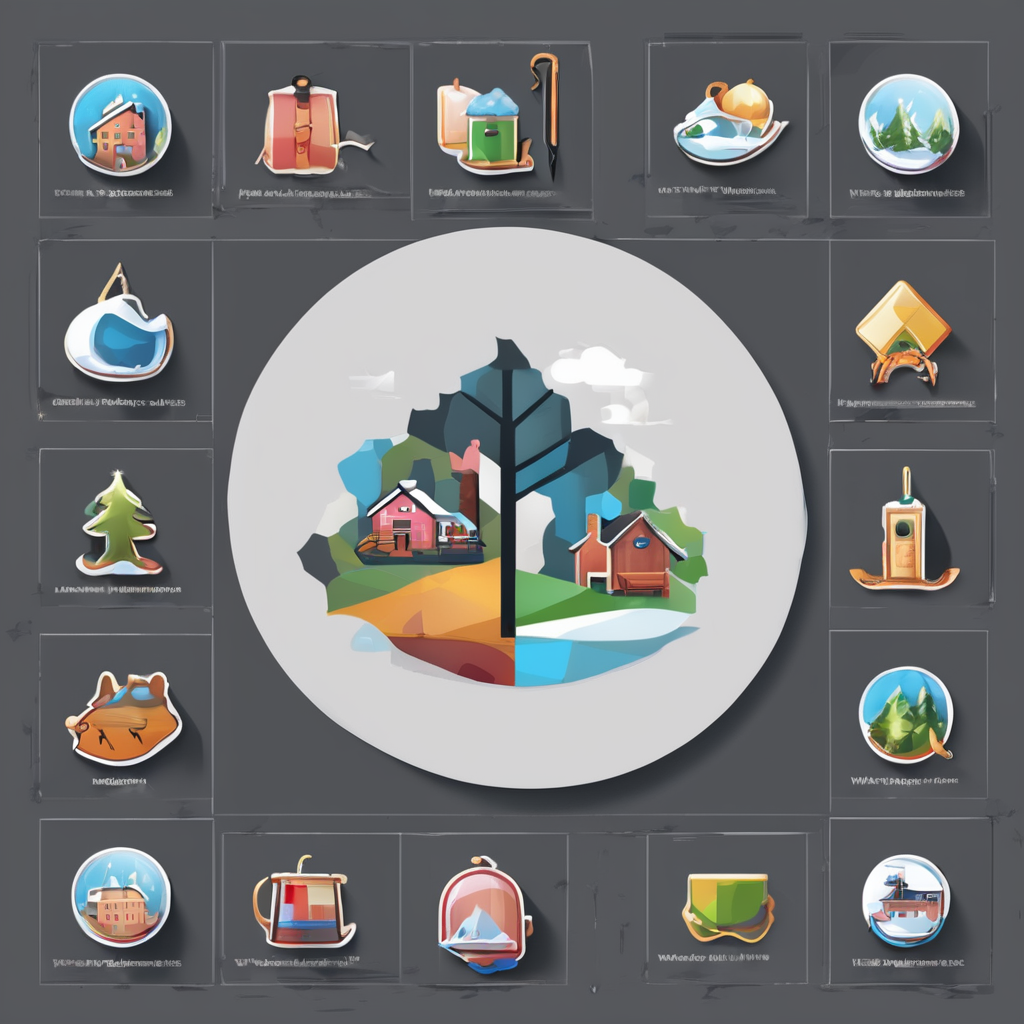Quick Reference Guide: 2023 UK Rainwater Harvesting Grant Landscape
Understanding the 2023 funding landscape for rainwater harvesting in the UK is essential for potential applicants aiming to secure financial support. In 2023, various UK grants are available to facilitate the adoption of sustainable water management practices, primarily focusing on rainwater harvesting systems. These grants originate from both government bodies and non-governmental organisations, each offering different types of grants tailored to homeowners, businesses, and environmental groups.
Government-funded schemes remain a significant source of grant opportunities, often emphasising energy efficiency and water conservation. Non-government sources may include environmental trusts and local bodies that support community-level projects. Notably, changes in the 2023 funding framework have introduced updated eligibility criteria and altered funding amounts, reflecting the UK’s enhanced commitment to sustainable water infrastructure.
Also read : Discover funding opportunities for mental health initiatives in uk schools: the essential guide
Applicants should note key updates such as increased funding caps for larger projects and the introduction of expedited grant processing for urgent installations. Awareness of these changes can optimise the chances of successful grant acquisition and ensure timely implementation of rainwater harvesting solutions. This dynamic grant landscape requires candidates to stay informed about the latest offerings and eligibility nuances related to the evolving UK grants environment in 2023.
Essential Eligibility Criteria for 2023 Grants
When aiming to secure UK grants for rainwater harvesting in 2023, understanding the eligibility requirements is crucial. These grant criteria are designed to ensure that funding supports projects aligned with environmental goals and efficient water management.
In parallel : 2023 guide to business rate relief: a must-have resource for small uk businesses
Typically, eligibility revolves around the applicant profile. Homeowners must demonstrate their property’s suitability for rainwater harvesting installations, often verified through site assessments. Businesses generally need to show how their projects contribute to sustainability targets or operational efficiency. Environmental organisations and community groups qualify by focusing on broader public or ecological benefits.
Specific restrictions in 2023 include limits on project scale and technology types. For example, rainwater harvesting systems must meet certain efficiency or certification standards to qualify. Technologies falling outside approved parameters may be excluded from eligibility requirements.
Qualifying for grants also involves submitting evidence of project feasibility, like technical specifications and budget plans. Commonly supported project types include residential rainwater collection systems, commercial water recycling initiatives, and community-level installations boosting local water resilience.
By closely aligning project proposals with these eligibility requirements and matching the precise grant criteria, applicants enhance their chances of success in the competitive 2023 funding environment. Understanding the nuances in applicant profile and the scope of valid projects is key to targeting the right UK grants for rainwater harvesting.
Navigating the Grant Application Process
Navigating the grant application process for UK grants in 2023 requires careful attention to the step-by-step process and adherence to specific timelines. Applicants must begin by thoroughly reviewing the grant guidelines and eligibility criteria to ensure their project aligns with funding objectives.
The application cycle typically involves several key stages: preparation, form completion, document submission, and review. Early preparation is essential; collecting accurate technical specifications, budgets, and supporting documentation before starting the application saves time and reduces errors. The application forms often require detailed project descriptions, anticipated outcomes, and cost justifications.
Critical deadlines demand vigilance. Missing submission dates can disqualify applicants instantly. Applicants should also anticipate potential delays by preparing materials well in advance. Many grants impose fixed windows for applications and have no extensions, so scheduling ahead is advised.
Common pitfalls include incomplete forms, insufficient supporting evidence, and failure to meet required formats. These errors are frequent reasons for delays or outright rejection. To avoid them, applicants should double-check all entries, verify document completeness, and cross-reference guidelines at every stage.
Understanding the full grant application journey ensures candidates approach the process efficiently and increase their likelihood of success in securing 2023 funding for rainwater harvesting projects.
Strengthening Your Proposal: Key Documents and Supporting Evidence
Presenting a compelling application for UK grants in 2023 requires thorough preparation of supporting documents that demonstrate the feasibility and impact of your rainwater harvesting project. Essential materials include detailed technical specifications that clarify system design and efficiency, accurate budget estimates, and multiple professional quotes to justify costs. These elements collectively enhance your proposal strength, proving that your project is both viable and financially responsible.
In addition to these basics, providing evidence of environmental benefits or sustainability outcomes can bolster your application. This might involve impact assessments or data projections showcasing water savings and resource efficiency. Organising your application materials clearly is crucial—group documents logically, label them precisely, and ensure all forms and attachments meet the specified criteria to avoid delays.
Structured supporting evidence not only satisfies grant criteria but also communicates your commitment and professionalism to reviewers. By assembling a comprehensive portfolio of application materials, applicants increase their chances of successfully securing 2023 funding for rainwater harvesting efforts in the UK.
Expert Strategies for Maximising Funding Success
In securing UK grants for rainwater harvesting in 2023, adopting effective strategies tailored to grant writing is essential for enhancing proposal impact. Winning strategies begin with thoroughly understanding specific grant criteria and customising each application to clearly align with the funders’ sustainability goals and priorities. Demonstrating how your project directly supports UK environmental targets boosts its appeal to reviewers.
One pivotal tip for success is leveraging partnerships and endorsements. Collaborating with recognised environmental organisations, local authorities, or water management experts adds credibility to your application. Such partnerships can provide additional evidence of community support and technical expertise, which are often valued in the evaluation process.
Expert advice further emphasizes careful articulation of project benefits, particularly focusing on measurable outcomes like water conservation or operational savings. Highlighting innovative technology use or community engagement can differentiate your proposal in a competitive funding landscape.
Applicants should also pay close attention to presentation quality and consistency across all application materials—well-organised documents that clearly evidence project viability reinforce confidence in your grant application. Successful applicants often seek feedback from previous winners or consultants specializing in water sustainability projects to refine their submissions.
By incorporating these expert strategies, candidates not only meet baseline requirements but also elevate their proposals, significantly increasing chances of securing the coveted 2023 UK grants for rainwater harvesting initiatives.
Case Studies: Successful 2023 Grant Recipients
Exploring case studies of successful recipients provides valuable insights into what constitutes strong applications for UK grants in rainwater harvesting during 2023 funding cycles. Real-life examples show a diversity of project types, all aligned with grant criteria and delivering measurable environmental benefits.
One notable success involved a community-led rainwater harvesting system installed at a local school. This project stood out by clearly demonstrating water savings through detailed monitoring data included in the application. The team provided comprehensive supporting documents such as technical specifications and precise budget forecasts, which reinforced the proposal’s credibility. Importantly, their alignment with current sustainability targets showcased a direct contribution to UK-wide water conservation goals, a common theme among strong applications.
Another exemplary project came from a medium-sized business that integrated rainwater harvesting into its operational processes. Their application excelled by emphasizing not only environmental impact but also cost savings and efficiency improvements, appealing directly to multiple types of grants targeted at businesses. This approach underscored the importance of tailoring proposals to funders’ priorities, a key takeaway from expert strategies.
Detailed project profiles often highlight the effective use of innovative technologies approved under 2023 eligibility rules. Successful applicants demonstrated their systems’ compliance with efficiency standards and provided robust evidence of site feasibility. These case studies teach future applicants the value of meticulous preparation and alignment with evolving grant opportunities in UK grants landscapes.
By reviewing these success stories, applicants can better understand practical steps to build competitive proposals, from strategic planning to comprehensive documentation—all vital components for securing coveted rainwater harvesting grants in the challenging 2023 funding environment.
Quick Reference Guide: 2023 UK Rainwater Harvesting Grant Landscape
The 2023 funding environment for UK grants in rainwater harvesting presents a variety of grant opportunities designed to support sustainable water management. Government schemes remain a primary source of funding, focusing on encouraging energy-efficient and water-saving technologies in residential, commercial, and community settings. Alongside these, non-government organisations contribute additional streams of support, often targeting smaller-scale or innovative projects that complement public initiatives.
Key changes in the 2023 landscape include raised funding caps, accommodating larger installations and more complex systems within approved projects. Additionally, some grants have introduced expedited processing to facilitate urgent deployments, reflecting the pressing demand for water resilience solutions amid climate challenges. The diversity in types of grants now offers tailored options based on applicant profiles and project scopes, ensuring various stakeholders—whether homeowners, businesses, or environmental groups—can access relevant support.
Staying informed about these evolving grant opportunities is critical, as eligibility requirements and funding priorities continue to shift in response to broader environmental policies. Applicants should monitor updates regularly to identify grants that match their specific rainwater harvesting ambitions. Understanding the distinct roles of government versus non-government funding can also guide strategic application choices, enhancing success chances in this competitive UK grants arena.





